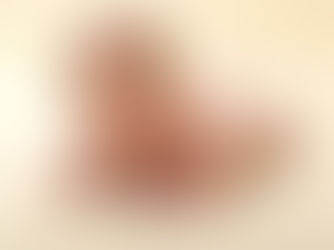Dadvantagepoint

"Understanding Your Baby’s Physical Changes: What to Expect and How to Respond"
Aug 29, 2024
3 min read
1
12
0
As your baby begins to grow and develop new skills, you may notice changes in her appearance, particularly in her face and body parts. These changes can sometimes be surprising or even concerning to new parents. In this blog, my goal is to provide detailed information about these changes, so you can feel more at ease and confident in your parenting journey. In my previous blog, I discussed changes in your baby’s eyes. In this post, I will cover other areas you might notice changes in.
Let's start with the ears. Sometimes, your baby’s ears may appear to fold forward or look creased and out of shape. It's important not to try to correct this by pushing them back or forward; the ears will naturally take shape over time. However, if you’re still concerned, you can always consult a pediatric plastic surgeon for reassurance. You may also notice that your baby’s ears secrete wax, which is completely normal as it is part of the ear's self-cleaning process.
Moving on to the nose, you might observe that your baby breathes irregularly or rapidly at times, and her breathing may even sound squeaky. You may also hear irregular breathing rhythms while she’s sleeping. Since she is still adjusting to her new environment, this is quite normal. Babies cannot blow their noses or clear their throats, and their narrow air passages can sometimes become congested with mucus or milk. It’s important not to panic; instead, let nature take its course. While your doctor may suggest a nasal spray, you should avoid trying to forcefully clear her nose.
Another aspect of your baby’s breathing you might notice is a hoarse cry. Sometimes, parents feel guilty if their baby cries for more than a few minutes, but it’s important to remember that crying helps clear her voice box. Babies are prone to a certain amount of hoarseness because there is a susceptibility to swelling in the tissue below the voice box, and this usually has no lasting significance. Sneezing, too, is common and usually a response to dust or fluff in the air, helping to clear her nose naturally.
Hiccups are another common occurrence in babies, and while adults might find them uncomfortable, your baby probably doesn't mind them at all. Hiccups are a normal part of her progress and development. Sometimes, feeding her can help stop the hiccups, but rest assured, it’s not caused by anything you’re doing wrong during feeding. It’s perfectly normal and nothing to worry about.
Regarding your baby’s tongue, she won’t produce a lot of saliva until she’s about 8-12 weeks old. Instead, her tongue may have a milky appearance because there isn’t much saliva to clean it. If she’s formula-fed, this whiteness might appear even thicker. While observing her tongue, you might also notice white pearly spots on the roof of her mouth. These are often mistaken for teeth but are actually small cysts that tend to pop out and disappear as mysteriously as they appeared. They have no relation to teething.
You might also encounter the condition known as tongue-tie, where your baby’s tongue is attached to the floor of her mouth rather than floating freely. Mild tongue-tie is common and usually corrects itself, but severe tongue-tie can cause issues like tooth decay at a young age because the tongue is unable to clean the mouth and teeth properly. Severe cases may require surgical intervention, often due to family history or other rare factors.
Lastly, you might feel lumps in your baby’s jaw or cheekbone, which are usually due to fat cells bursting during labor and are more likely to appear after birth. These lumps are harmless and generally disappear within a few weeks. Another type of lump you might notice is a small, pea-sized lump on the back of her neck or behind her ear. These are typically large lymph nodes and aren’t significant unless they become large, tender, or warm to the touch. If that happens, you should consult your baby’s doctor.
I will continue to share more insights into your baby’s development and growth in future blogs. Until then, happy parenting! Remember, you’re doing a fantastic job, and your care for your baby is more than perfect.





